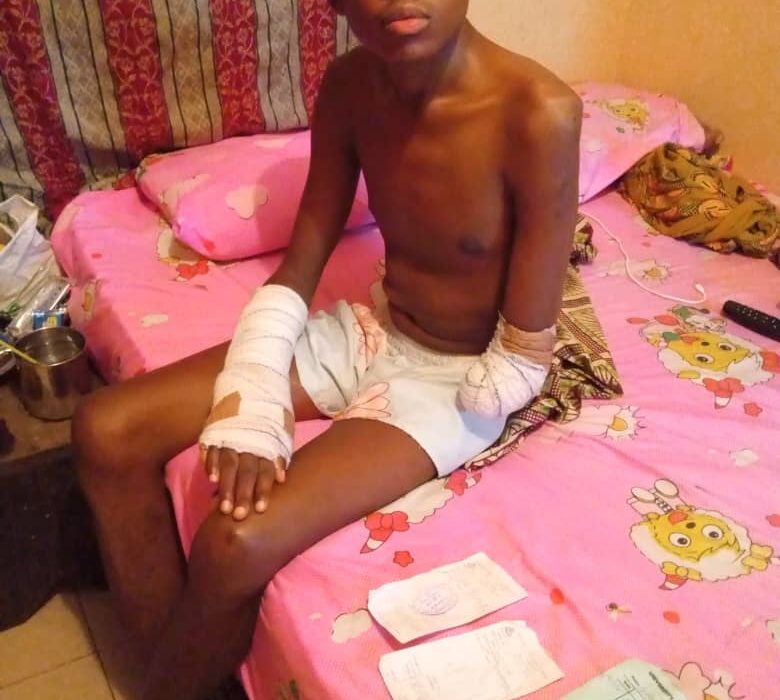A Nigerian woman living with the lifelong complications of sickle cell anaemia, Balikis Salami, has made an emotional plea to young couples with the AS genotype to avoid marrying each other, stressing the severe physical, emotional, and financial suffering children born with sickle cell disorder often endure.
Speaking from her personal ordeal, Salami, who has lived with the genetic blood disorder since childhood, recounted how her condition led to the amputation of her right arm—not once, but twice—after years of battling a persistent, non-healing wound linked to sickle cell-related infections. Now left with limited mobility and dealing with memory challenges, the young woman said no child should be made to go through the agony she has experienced.
Sickle cell anaemia is a hereditary condition where the red blood cells become abnormally shaped, affecting their ability to transport oxygen throughout the body. The condition is passed down when both parents carry the AS genotype—a carrier status that is generally harmless to the individual but dangerous if passed on by both partners, as it puts offspring at risk of inheriting the SS genotype, the most severe form of the disease.
Salami explained that her journey has been nothing short of a nightmare, from intense physical pain to psychological trauma, and ultimately, abandonment by those closest to her.
“Sickle cell anaemia is something I wouldn’t wish on anyone,” she said. “It has no cure, and it follows you for life. People with the AS genotype should not marry each other. Giving birth to a sickle cell child means a life of pain, suffering, and endless expenses for the parents.”
The young woman, who had been pursuing a National Diploma before her health condition forced her to withdraw, revealed that she lived with a festering wound on her right arm for nearly four years. After the initial amputation below the elbow failed to heal, doctors had no choice but to perform a second amputation—this time above the elbow.
“They said something was growing inside the wound and covering it, preventing healing. Six months after the first surgery, they had to amputate again,” she recalled.
The impact of the amputation went far beyond the physical, as Salami now struggles with basic tasks and battles with memory loss. She described moments when she would begin typing a message on her phone only to forget midway what she intended to write, forcing her to pause and recollect her thoughts.
But the deepest scar, she said, came from the social rejection she faced after losing her arm. According to her, family members, including cousins, began to avoid her, claiming she gave off a smell after the amputation. Eventually, she was left to live alone.
“My cousins stopped associating with me. They said I was smelling and stopped coming around. Even my best friend, who I started university with, abandoned me,” she lamented.
Salami revealed how that friend, whom she had shared accommodation with during her early university days, disappeared once her health deteriorated, never returning even after years.
“I don’t blame her. If my own family could abandon me, what more can I expect from a friend?” she said bitterly.
She appealed to Nigerians, particularly young couples planning to marry, to take genotype testing seriously before making any lifelong commitments. According to her, knowing one’s genotype is not just a health precaution—it is a moral responsibility to prevent future generations from suffering.
Her warning echoes concerns long raised by paediatric and child health experts, who have emphasised the need for children and adolescents to know their genotype as early as possible. Medical professionals explain that such awareness allows individuals and families to make informed health and marital decisions, helps in the early diagnosis and management of genotype-linked conditions, and promotes preventive health planning.
Health specialists maintain that while sickle cell is manageable with the right medical interventions, the pain, mental distress, and financial cost can be overwhelming, particularly in low-resource settings like Nigeria where access to advanced care is limited.
Balikis Salami’s voice, though shaped by pain, rings with the urgency of a lived experience. She hopes that by sharing her story, others will be spared the heartbreak and hardship she has endured.
